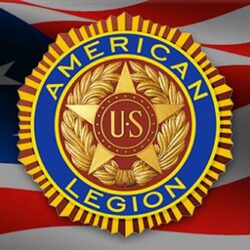After serving with the U.S. Army, Mario Farfan gained 22 years of experience in business development and community outreach. He has experience working in key banking roles, including as regional manager and branch manager throughout the Chicago, Illinois and Milwaukee, Wisconsin markets. In addition, Farfan founded the Northwest Hispanic Chamber of Commerce (NWHCC), an organization that combines his expertise in business with his stalwart support of his community. U.S. Veterans Magazine (USVM) had the opportunity to speak with Farfan about his work and his advice for applying military skills to jobs in the civilian sector.
USVM: In 2015, you founded the NWHCC with a direct focus on business development in the Latino market. Can you tell us about NWHCC, the need you identified in the Latino market and the impact you’ve seen so far?
Mario Farfan (MF): NWHCC is a regional chamber that covers DuPage, Lake, Kane and suburban Cook counties. We specifically focus on owners of Hispanic-owned businesses, but we are open to all businesses that are looking for additional resources to help sustain and grow them. The needs that were identified were access to capital, marketing and representation. Many business owners did not feel welcomed in the events or meetings. The impact we created was a call to action for the needs mentioned above. Our chamber has been able to open doors, expand networks and provide access to resources for our communities.
USVM: You are passionate about expanding your knowledge about the communities you serve and your connections to create an impact. Why is this important to you?
MF: I want to ensure that business grows in Illinois and, more specifically, within the minority communities. I also want to see more inclusivity across the board. If we are all more open-minded and can learn from each other, this will attract new business and create a great future for everyone!
USVM: Many people feel a loss of identity when they transition from the military and need some support in determining what to do next. You have been extremely successful in blending your professional expertise with your passion for service. Can you share some advice for someone trying to identify their why?
MF: It is certainly not easy and did not come right away. My strong recommendation is to find and join groups that help veterans and start to look at mentor groups. In 2024, there are way more groups out there than when I got out in 1999. I would say start there; after that, you must network. Find local chambers or groups and create a LinkedIn profile—that was key for me.
USVM: What is the best way for someone currently serving to begin translating the vast amount of experience they have gained into skills that company recruiters are looking for?
MF: I go back to LinkedIn. Numerous recruiters and companies are looking for veterans. There are also several good groups out there to research that can help. You must start networking early!
Discover valuable networking tips here.
USVM: What is next on the horizon for you?
MF: I continue to look at other opportunities to serve and support. I am working on a veteran’s chamber soon, so stay tuned for that!
The post Transition Tips from a Transitioned Vet appeared first on U.S. Veterans.
